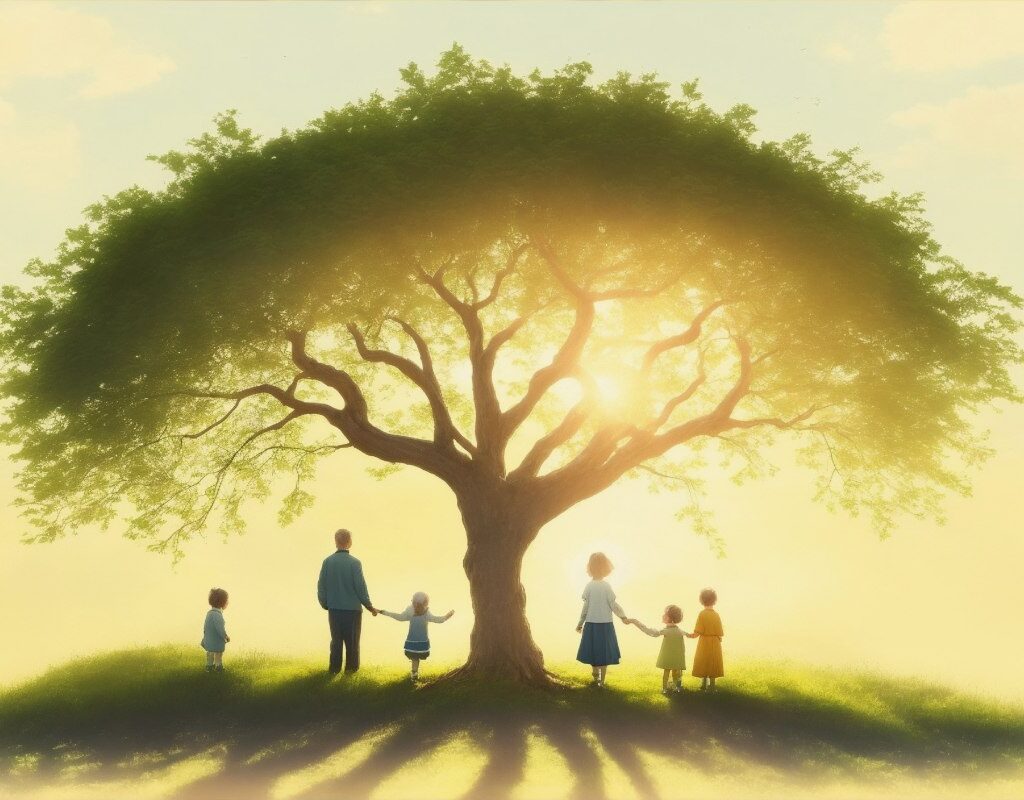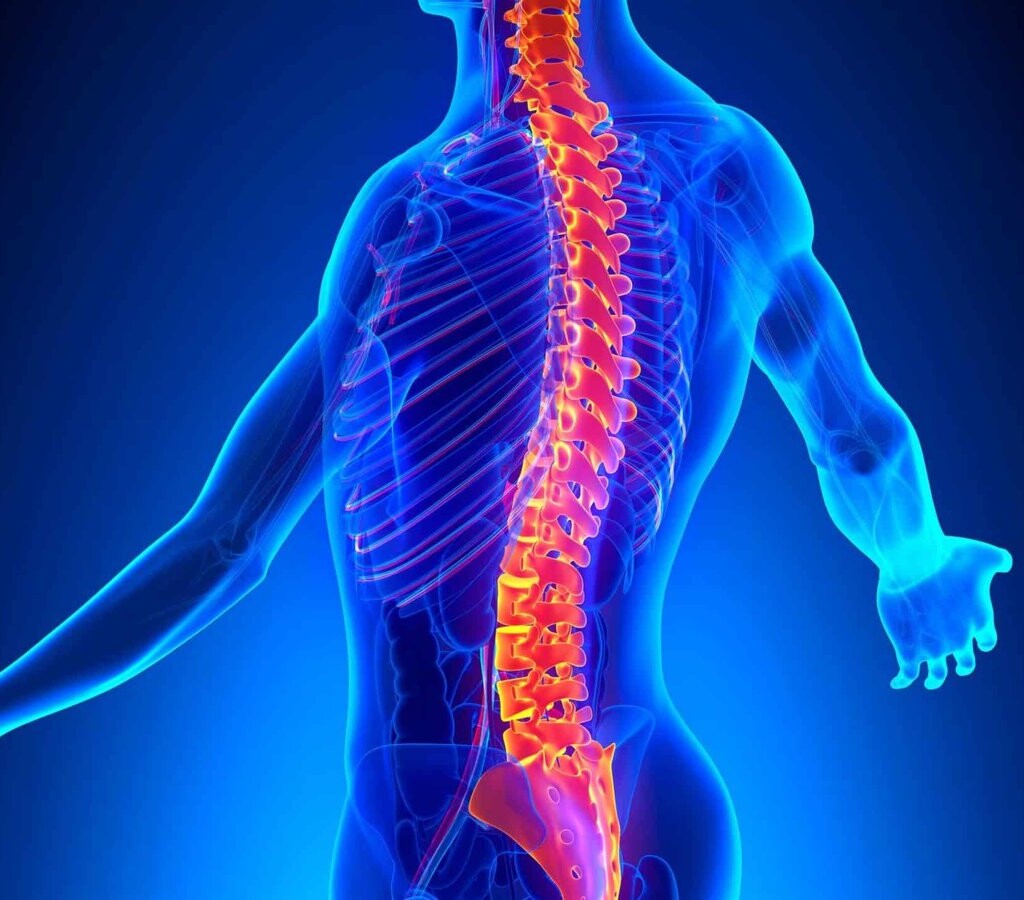Biodecoding supports a fascinating and challenging theory: children don’t get sick, they reflect the emotions of their parents. This concept opens up a new perspective in the understanding of childhood diseases and proposes a profound approach to health from the emotional and family spheres.
Biodecoding: Understanding How Parental Conflicts Affect Children’s Health
During our childhood, we are diagnosed with a number of diseases, some more serious than others but all in some ways, uncomfortable.
From the perspective of Biodecoding, it is argued that children do not really get sick but that they reflect the emotions and conflicts of their parents, especially the mother.
This statement may be difficult to assimilate but from the logic of the child’s unconscious, it makes sense: the child, in an instinctive attempt at survival, absorbs the emotionality of the mother to guarantee their own survival, in case it is lacking.
This act, although it can be interpreted as a form of filial love is actually a biological and selfish impulse, designed to preserve the life of the human being. The use of the term “selfish” here does not involve a conscious and premeditated choice but rather an unconscious biological mechanism.
Childhood illnesses: A reflection of unexpressed parental emotions?
Louise L. Hay, who was an expert in healing and self-help, argued that childhood illnesses are often a reflection of childhood behaviors in the adults around the child. However, it proposes a new mental approach, affirming that children are protected by love and divinity, thus promoting the idea of mental immunity.
After years of observation and study, experts in Biodecoding have come to the conclusion that children don’t actually get sick until they are 14 years old.
Biodecoding insists that any symptoms that a child may have, from birth to age 14, are actually a manifestation of the parents’ unexpressed emotions.
This concept is based on the idea that children, as part of their parents, inherit their emotions and reproduce their patterns. While both father and mother can project their emotions onto their children, it is estimated that 80% come from the mother and 20% from the father.
Parental Emotions and Child Health: The Fascinating Findings of Biodecoding
When a child under 14 has a symptom, the first action should be to review the emotional state of the parents.
Clear patterns have been observed in this direction: conflicts between parents can cause colds in children, the mother’s distaste for her work can result in arm aches or fractures in the child, the refusal to care for a family member can manifest as knee pain in the child, among others.
This remarkable finding points out that, when parents resolve their emotional conflicts, the child’s health improves. However, Biodecoding distinguishes between “presenting a symptom”, “presenting a behavior” and “being born with a symptom” opening the door to different approaches to solution and cure.
The analysis of behaviors and symptoms is essential in Biodecoding, taking into account elements such as the Sense Project (referring to the emotional impact of parents on the child during pregnancy and the first years of life), the Transgenerational (the emotions and conflicts inherited from previous generations) and the Reclaimed Syndrome (related to the emotions that arise from the loss of a twin during pregnancy).
From symptoms to emotions: The path to children’s health according to Biodecoding
Thus, a complete Biodecoding session involves a comprehensive exploration of all the elements that make up the family. This approach encourages parents to change the questions they ask about their children’s health, focusing them on their own emotionality.
Instead of wondering why their children are sick, they should dig into their own emotions and conflicts to find the root of the problem.
This involves reviewing daily the emotional conflicts experienced, analyzing what has not been expressed, unlocking repressed emotions and confronting fears, resentments and guilt. The severity of the symptom in children is usually an indicator of the extent of the emotional conflict to be resolved in the parents.
Naturally, parents tend to be concerned when their children have symptoms of illness. Their first reaction is usually to go to the doctor, buy medicines and even travel to other countries in search of a solution. However, Biodecoding invites parents to take a moment to reflect and analyze the emotional experiences they had months, weeks or days before their child showed signs of illness.
This personal emotional analysis could reveal the response to the situation and provide the necessary guidance for change and modification that could promote your child’s healing.
If a child is born sick, Biodecoding suggests that parents stop and reflect on the “meaningful project” that could have influenced the child during conception and pregnancy.
This analysis involves reviewing the relationship between parents, as well as any concerns, fears and resentments that may have been present during that time.
Discovering the Family Past: The Hidden Key to Resolving Emotional Conflicts in Children
Only if this analysis does not provide a clear answer should parents begin to explore the child’s family tree from the child to the great-grandparents or beyond, to identify emotional patterns or inherited conflicts. It should be noted that this is not a process that should be taken lightly.
If parents are already showing resistance or pretext not to do this work, they are going in a counterproductive direction.
Desire and will are crucial elements in this process. Those who are willing to make an effort can go on a true journey of discovery, visiting libraries, newspaper archives and cemeteries, consulting government archives and official records.
They should not simply state that “there is no data available from that family”. They must approach this process like professional detectives with the goal of discovering everything that is hidden.
Building a family tree isn’t just a hobby. It’s a job that requires dedication, patience and dedication. Some people may take more than three years to complete it.
However, if necessary, this effort can be critical to freeing your children from inherited emotional conflicts and promoting their health and well-being.




